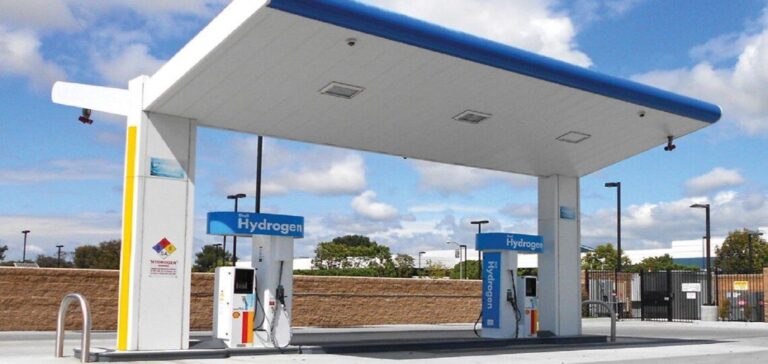The California Energy Commission has approved the award of nearly $6 million to two projects that will provide hydrogen refueling stations to advance toward the state’s goal of 200 hydrogen refueling stations.
5.78 million in grants for 6 new hydrogen fueling stations in California
The $5.78 million in grants were awarded to Air Products and Chemicals and First Element Fuel to develop six fueling stations for fuel cell electric vehicles, said Jane Berner, air pollution specialist with the commission’s fuels and transportation division, at an August 9 commission meeting.
“This tender was aimed at projects that would provide new refueling points for fuel cell electric vehicles to meet transport decarbonization targets,” said Berner.
The tender was launched in October 2022 and funded by the 2021-22 California budget bill. The grant application was to support projects that would provide publicly accessible hydrogen refueling stations to enable the continued growth of California’s fuel cell electric vehicle market.
“The amount of hydrogen delivered by these stations has increased,” said Commission member Patricia Monahan. “That’s because trucks need them to meet California’s increasingly stringent zero-emission transportation requirements.”
Air Products and Chemicals receives $2.78 million grant for multi-purpose hydrogen fuelling stations
Air Products and Chemicals received a $2.78 million grant, matched by the same amount, to build multi-purpose hydrogen refueling stations with four light-vehicle refueling stations and at least two heavy-vehicle refueling stations, Berner said.
“The objective of this agreement is to develop and install a multi-purpose hydrogen refueling station in Galt, California, to demonstrate that hydrogen refueling infrastructure can be deployed at costs that will be attractive in an expected commercial market,” according to Air Products and Chemicals’ specifications. “Another objective is to provide cost-competitive hydrogen for multi-purpose vehicles at consumer prices that can be sustained over the next three to five years without a government funding program for infrastructure.
The Galt, California station would have a capacity of 6,000 kg/d with renewable hydrogen sources from an Arizona smelter, Berner said. It is expected to serve 20 large trucks per day and reduce carbon intensity by 60% compared with hydrogen produced from natural gas.
“Air Products is looking forward to deploying on a commercial scale a reliable and resilient hydrogen refueling station that will provide fuel for heavy trucks and light passenger vehicles,” said Kristen Cleven, Air Products and Chemicals.
First Element Fuel receives $3 million grant for light and heavy vehicle refuelling stations
First Element Fuel received a $3 million grant. Mr. Berner mentioned a consideration of $8.885 million. This sum will finance 4 light-vehicle and 2 heavy-vehicle stations.
“California has set ambitious goals to decarbonize and reduce harmful emissions from the transportation sector by transitioning light-duty vehicles and medium- and heavy-duty trucks to zero-emission technologies,” according to First Element Fuel’s specification. “Fuel cell vehicles are one of the key ways of achieving these goals; however, a sufficient number of hydrogen refueling stations are needed.”
The plant in Kettleman City, California, would have a capacity of up to 18,000 kg/d and would serve around 200 trucks a day.
“All the truck stations we’re planning will have a section for light vehicles,” said Matt Miyasato of First Element Fuel. “So that’s what we’re planning for all our heavy-duty vehicle decisions as we move forward.”
The road to California’s goal: Expansion of hydrogen stations to support growth in light-duty vehicles
Funding for the hydrogen refueling infrastructure totals $271 million, said Berner. A decree has set a target of 200 hydrogen stations. There are currently 65 fully operational hydrogen stations serving around 50,000 vehicles, said Berner.
Projections for light electric vehicles are set to reach 65,000 over the next five years. Mr. Berner reported that the grant recipient had withdrawn 50 stations and cancelled two others after this tender. This reduces the number of funded stations to 130, serving around 190,000 light vehicles.
There are currently 65 fully operational hydrogen stations serving around 50,000 vehicles, Berner said. Light vehicles are projected to reach 65,000 over the next five years.
“We therefore expect to have sufficient capacity to service this number of vehicles,” said Berner.






















